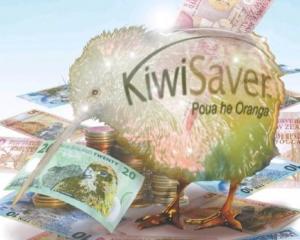The KiwiSaver tax credit will reduced, Working for Families reduced for higher income people and the student loan scheme adjusted, Prime Minister John Key says.
The changes would not be implemented until after the election, he told a pre-budget speech in Wellington today.
Individuals and employers would be required to make up the difference left by the reduced tax credit, he said. Details would be in next week's budget, but Mr Key did confirm the $1000 kick start payment would not be changed.
"The changes to KiwiSaver won't happen immediately and this will give people and businesses time to adjust," Mr Key said.
"Increased contributions from people and businesses will happen at a time when the economy will have well and truly recovered and both wages and employment will be increasing."
Under the tax credit the Government matches contributions by up to $1042.86 each year. This works out to about $20 a week.
"People might not realise this, but currently over $1 billion a year of what goes into people's KiwiSaver accounts comes from the Government, through subsidies and tax breaks.
"Over time, the Government has put in nearly half the money that has built up in KiwiSaver accounts. But that does not constitute real savings."
He said borrowing cancelled out the value of savings.
"So at the moment, the Government contributions to KiwiSaver make no difference to the level of national savings.
"They do, however, increase our reliance on overseas lenders, who can at any time decide that our debt has grown too large and that we are just too much of a risk."
There are 1.7 million people in the scheme, which is gaining about 20,000 new members a month.
After the budget changes, total KiwiSaver funds were projected to rise from around $8 billion currently, to about $25 billion by 2015, and to almost $60 billion in 10 years.
"The advice we have had from officials, who have modelled the effect of the budget changes, is that they will result in a modest improvement in the rate of national savings," Mr Key said.
"As a result of the KiwiSaver changes alone, New Zealand's net international liabilities -- the amount the country owes to foreign lenders -- will reduce by an estimated 2 per cent of GDP over the next decade."
Working for Families would be targeted at lower income households and be "less generous" for higher income earners.
"We will do this gradually, in a way that minimises the impact on families," Mr Key said.
The changes would take into account how many children were in a family.
"For example, Working for Families payments currently tail off at an income of around $75,000 when a family has only one child, but around $130,000 when a family has four children."
Mr Key said during the 2005 election campaign Labour's finance minister Michael Cullen boosted the scheme beyond what was planned for.
"This year Working for Families tax credits will cost almost $2.8 billion - roughly twice what they cost in 2005/06."
The amount spent on the scheme would be reduced each year, "but at the same time target a greater proportion of the total spend at the most vulnerable families."
The changes would be phased in over a decade.
The student loan scheme would also be adjusted but remain interest free.
"Post-recession, it is clear that the high costs of KiwiSaver, Working for Families and interest-free student loans are unaffordable in the longer term.
"The changes we will make in the budget will ensure they are more enduring and sustainable. We don't want Kiwis to be thinking from year to year that these programmes could end up being axed."
The three programmes together cost $5 billion a year which had to be borrowed because of the deficit.






